Have you ever looked at your crossbreed or rescue dog and wondered where they came from?
Maybe you’ve daydreamed about what their mum and dad looked like or what they looked like as pups?
When you have a crossbreed or a rescue dog, you can spend a long time pondering which breeds they are.
We usually base our guesses on their appearance more than anything else, but how accurate our predictions are can only be revealed with a dog DNA test.
I had DNA tests for both Patch and Daisy to find out more about their terrier breed make up.
And the results were quite surprising.
Despite looking very different, Patch and Daisy had very similar genetic makeup, and their DNA results were almost the same!
I know lots of pet owners would love to know the heritage of their dog too, so in this post I’m going to break down all you need to know when it comes to DNA tests for your dog.
Why have a DNA test for your dog?
A DNA test allows you to reveal your mixed-breed dog’s ancestry, putting all that guesswork to bed. Our dog’s breed can influence their behaviour, their favourite activities, and their personality traits. It can even let you know if any health issues are prevalent in the breeds.
When you have a DNA test for your dog, it allows you to get to know your best friend even more deeply, and it’s a lot of fun too. Place your bets and then await the results!
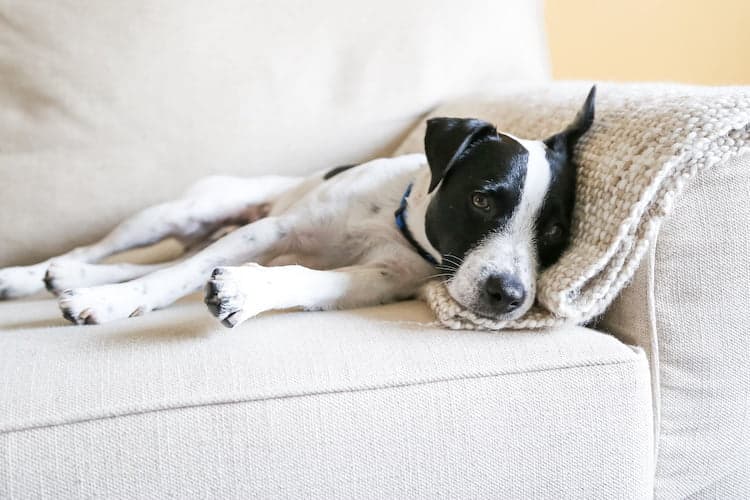
Where can you get a dog DNA test?
For both Patch and Daisy, we chose Blackdog DNA for our DNA tests and you can find out more at www.blackdogdna.com
I tested Daisy back in 2016 after chatting to Sarah Morris of Blackdog DNA at Dogfest.
Two years later when we adopted Patch, he had a DNA test so we could discover his heritage too.
We knew he was a Patterdale Terrier crossed with a Border Terrier from when we adopted him.
But of course I wanted to learn more. His dad Marley was a Border Terrier and his mum a Patterdale so the test broke down the different types of terrier. (Patterdales are a mix of different breeds)
Blackdog DNA uses a database of 185 pure dog breeds from UK and US Kennel Club lists.
If your dog’s breed is not on this list, then you will find the closest related breed in your results.
Blackdog DNA does not recommend using their DNA test for rescues from overseas outside of the UK or USA as the results are likely to be inconclusive.
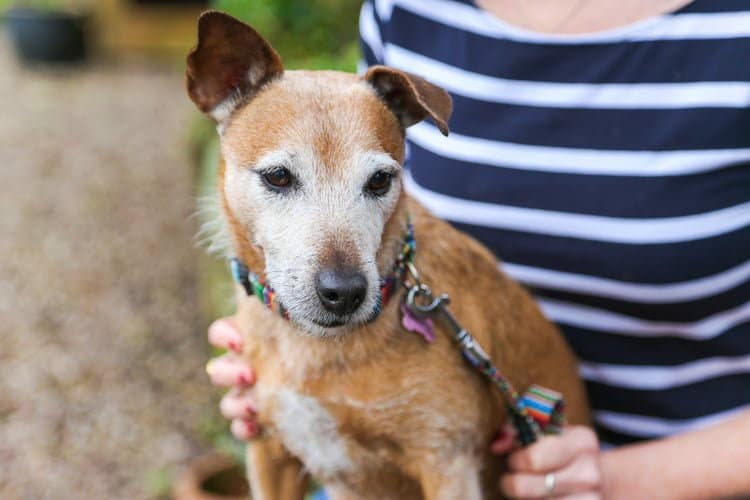
How do you do the DNA test?
It’s quite a simple process to test your dog’s DNA. You have to wait a couple of hours after they’ve eaten, so the sample doesn’t get decontaminated and skew your results.
In your DNA kit, you get two little swabs, which you simply remove from the sleeve and roll around the inside of your dog’s cheeks and gums one at a time.
I say simply, but I suppose that depends on your dog!
You do this for around 15 seconds, and then you need to let each swab air dry for five minutes before putting back into the sleeve they came in.
Blackdog DNA sends a prepaid envelope with the kit, so you simply put the sleeved swabs inside and pop them in the postbox.
Within three weeks, your dog’s family history will be revealed!
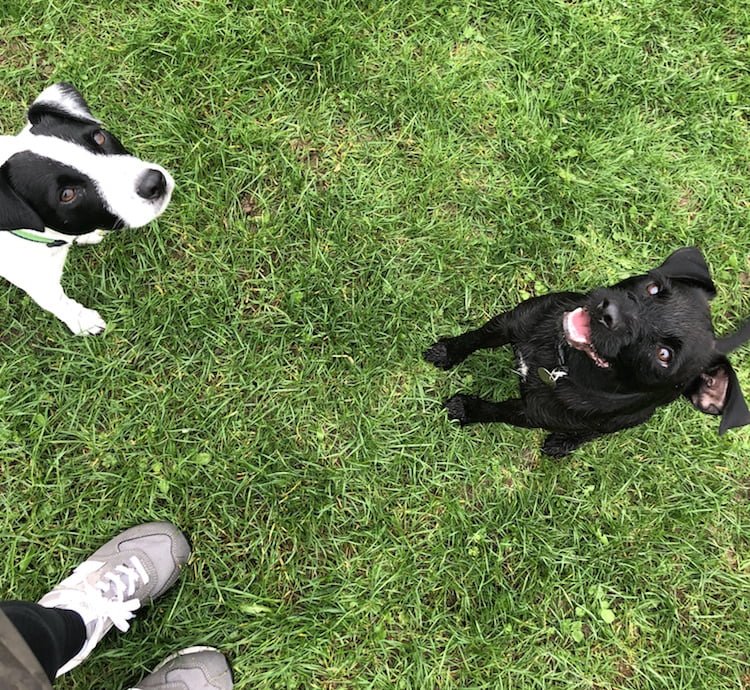
What does a dog DNA test tell you?
We opted for the silver service testing kit, which includes a training and behaviour profile with your results, which give you so much insight into your dog.
The results are really interesting because they don’t just tell you the breeds that make up your dog but indicate how much of each breed as well.
Level 1 means that over 75% of your dog’s DNA is from this breed
Level 2 means that between 37-74% of your dog’s DNA is from this breed
Level 3 means that 20-36% of your dog’s DNA is from this breed
Level 4 is 10-19% of your dog’s DNA is from this breed
Level 5 is less than 10% of the given breed in your dog
Levels 1 and 2 generally indicates that either one or both parents were purebred dogs. Levels 3 and 4 can suggest that a grandparent was a pure breed dog.
Level 5 shows some DNA related to the breed; although likely not enough to influence your dog’s look, it may show up in other areas such as temperament or personality traits.
It’s fascinating that your dog may more strongly resemble a breed for which they have a lower DNA link. This is why assessing your mixed-breed dog’s heritage can be difficult to do without a DNA test.
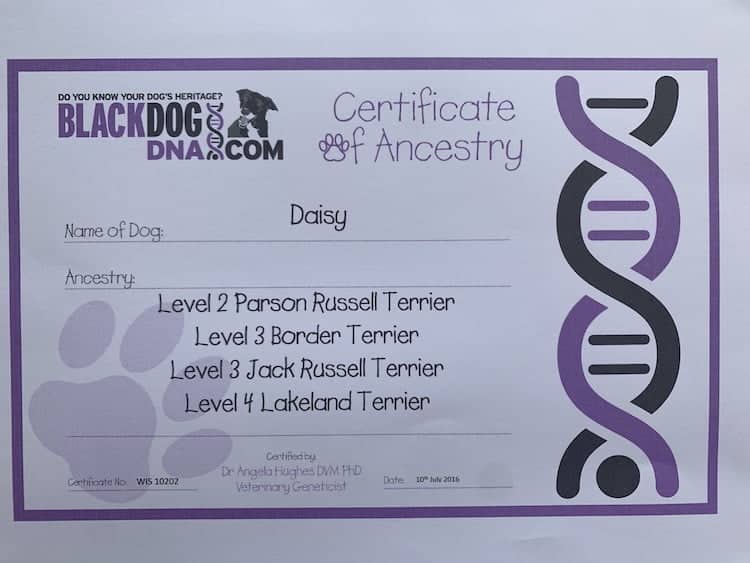
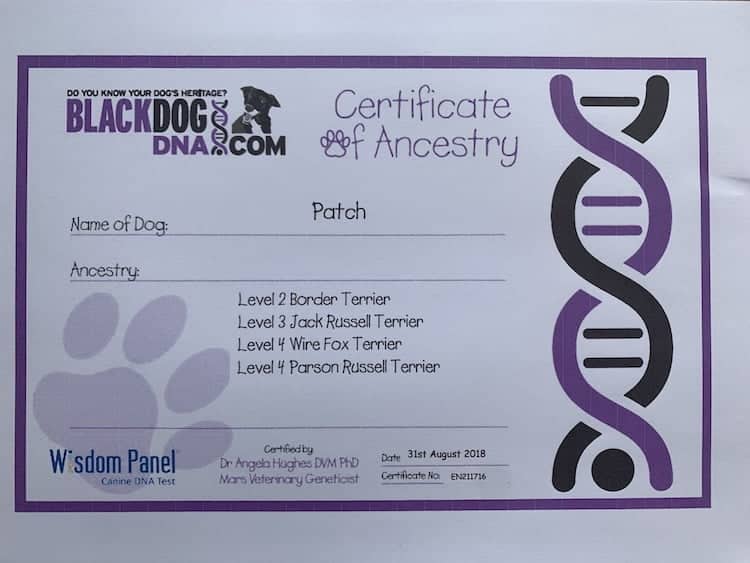
What did I learn from my dog’s DNA tests?
Patch and my beloved Daisy may not look very similar, but I was really surprised when I compared their results.
Patch was identified as a mix of Border Terrier (level 2), Jack Russell (level 3), Wire Fox Terrier (level 4), and Parson Russell Terrier (level 4).
Daisy was a cross of Parson Russell (level 2), Border terrier (level 3), Jack Russell (level 3), and Lakeland terrier (Level 4).
What about the personalities?
Well this was my favourite part because they were both so similar.
The personality report is a couple pages long but these are the highlights.
Both Patch and Daisy had Border Terrier in their DNA, meaning they were bred as working dogs, to find fox and other vermin.
So both of them love to chase – great with balls – not so much with small furries, cats and squirrels.
(You might like to read Why does my dog chase squirrels)
As Jack Russells, both dogs are said to have lots of energy, love to play and are happy go lucky.
Daisy was a little more highly strung than Patch is, but that may have been due to her being a stray as a young dog.
Both profiles said they would love relaxing on their owner’s knee and having cuddles which was true.
Patch has Fox Terrier in his make up, and while it wasn’t mentioned in the report, one article I read in Edition Dog talked about the Fox Terrier being attention seeking and that is Patch.
Daisy’s other breed was Lakeland and I loved that they were descibed as being ‘clownish and friendly.’
I also had a chuckle when the report talked about their love of digging as Daisy once dug her way into a compost heap at a friend’s barbecue!
So, if you’re thinking of getting a DNA test for your dog, I would definitely give it a try!
If so, I’d love to hear how you get on and what your motivation was for looking into your pup’s family tree!
You can order a Blackdog DNA test directly from their website, and they cost between £65.00 – £81.99.
Find out more at https://blackdog-training.co.uk/product/dog-dna-test/
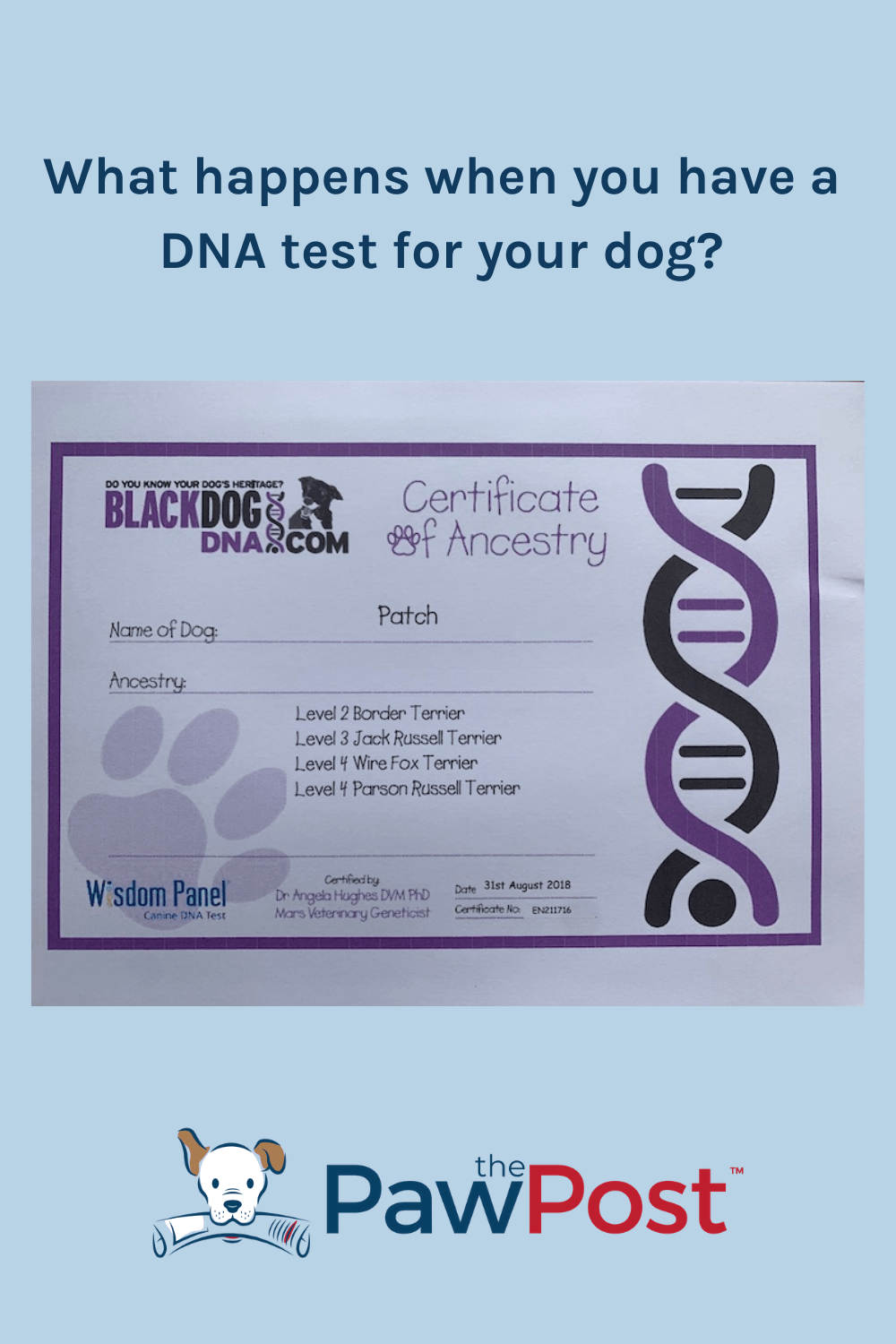

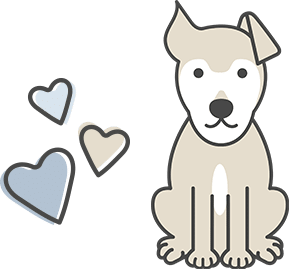
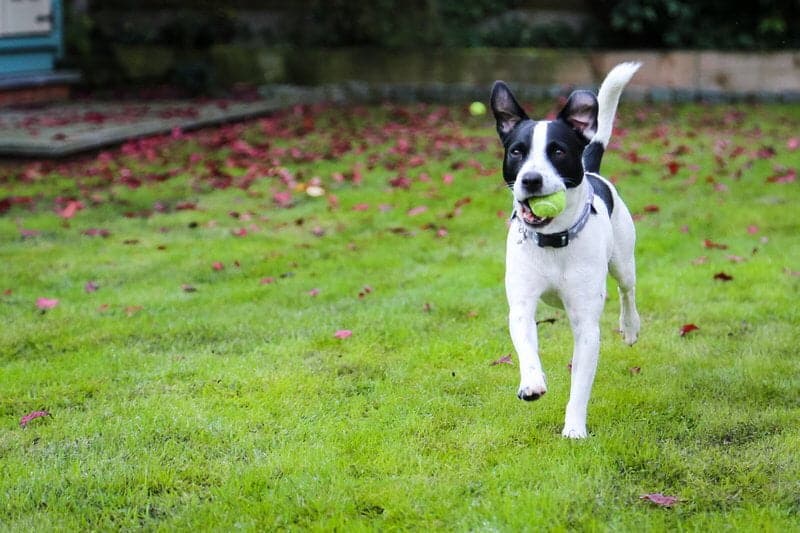


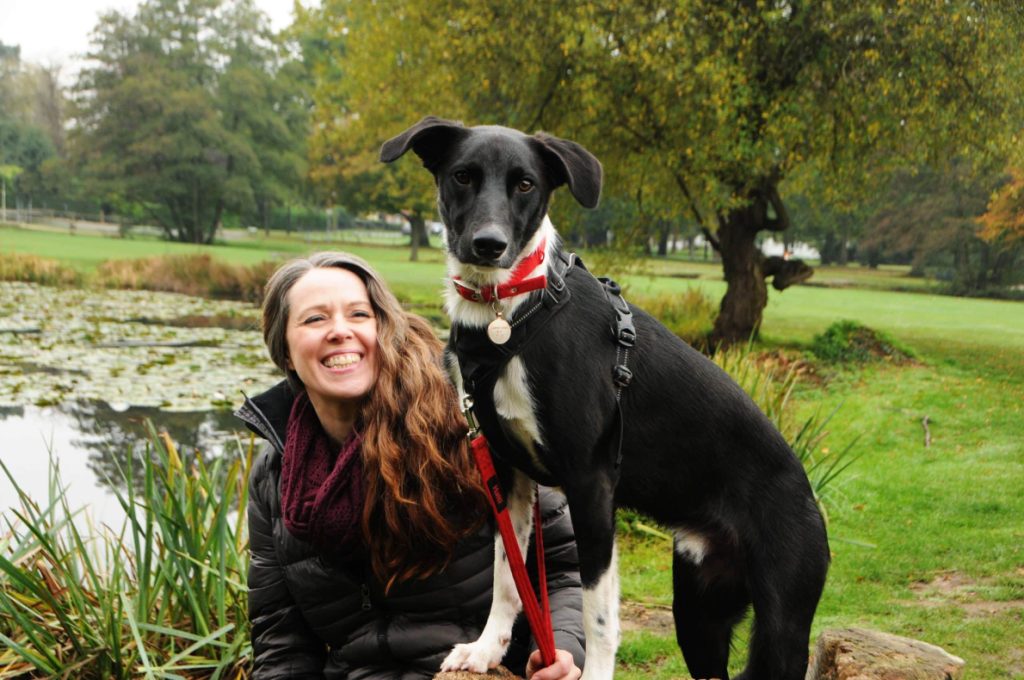
2 Responses
I really enjoyed this article. Thanks for sharing.
This blog is very interesting and i learned alot from it. If you are facing issues in covid because of your pets. Here’s the Solution, Provide your pets a proper diet for their growth and also design a proper diet chart for your pets to keep them healthy and safe. I’ll recommend you petvet, if you wanna hire a pet doctor or wanna buy a new pet.